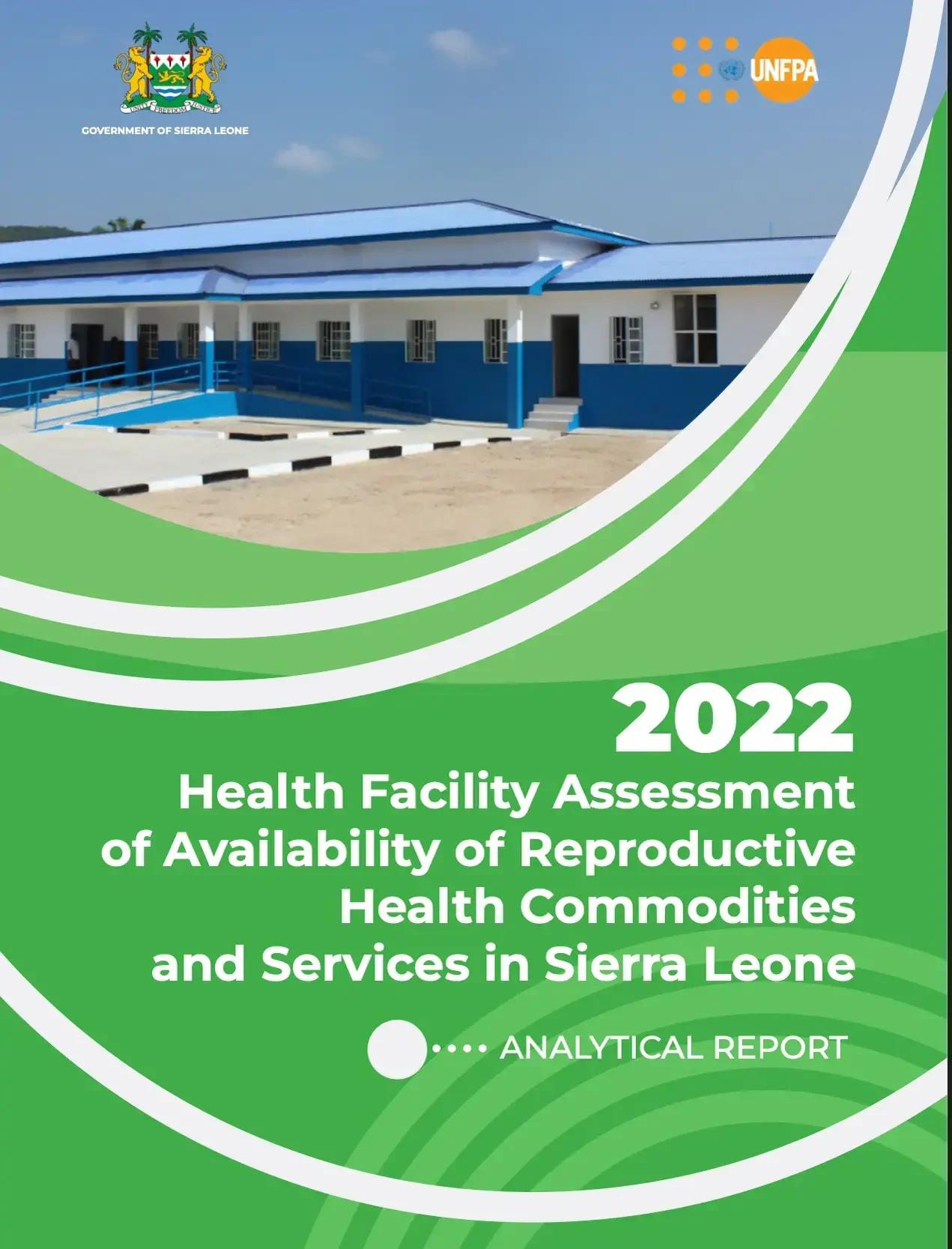The Government of Sierra Leone has demonstrated its commitment to ensuring access to sexual and reproductive health services including family planning to its citizens. The concerted efforts of the Government and development partners has led to remarkable progress in accelerating reduction in preventable maternal deaths and improving access to voluntary family planning services. Sierra Leone has made notable progress in improving maternal health with a 74% reduction in MMR from 1,682 deaths per 100,000 live births in 2000 to 443 deaths per 100,000 live births in 2020 (UN Estimates, 2023). The Government of Sierra Leone has also committed to strengthening family planning as part of its FP2030 commitments, including a focus on increased access to quality family planning services, strengthening supply chain and sustainable financing.
Nevertheless, there a long way to go. Contraceptive use has gradually increased but remains relatively low with the modern contraceptive prevalence rate for all women increasing from 8% in 2008, to 21% in 2013, to 24% in 2019. Unmet need for family planning for married women aged 15-49 remains high at 24.8% and rises to 27.8% for adolescent girls aged 15-19 (DHS, 2019). Less than half of the total demand for contraceptives is currently satisfied.
In order to avert this situation, cost effective and feasible interventions do exist. However, these interventions require the reliable supply of contraceptives and life-saving maternal health medicines. The United Nations Population Fund continues to support voluntary family planning through its UNFPA Supplies Partnership programme. Alongside the provision of modern methods of contraceptives and capacity-building initiatives, UNFPA supports the regular conduct of the National Health Facility Assessment on Availability of Reproductive Health Commodities and Services, which provides data on the availability of contraceptives and life-saving maternal and reproductive health medicines in the country.
This report provides data on key indicators related to the percentage of Service Delivery Points offering at least three and five modern contraceptive methods; the percentage of SDPs providing delivery services where seven of the life-saving maternal/reproductive health medicines from the World Health Organization list are available; and the percentage of SDPs with ‘no stock-out’ of modern contraceptives in the past three months before the survey.
In addition, the report also provides information on salient aspects of SDPs that underpin the provision of family planning services, such as the supply chain, cold chain, staff training and supervision, availability of guidelines and protocols, availability and use of Information Communication Technology and the quality-of-service delivery at the health facilities. The report also presents information on the clients’ perception and appraisal of the costs of family planning services.
The report will inform policy on planning and programming of modern contraceptive commodities and services as well as the provision of essential life-saving maternal and reproductive health medicines. The information shared in the report will further help to reposition family planning and strengthen programming for emergency obstetric and neonatal care in Sierra Leone.


